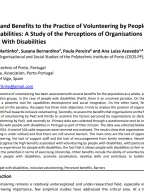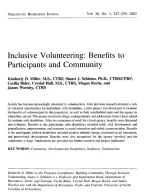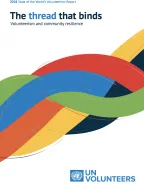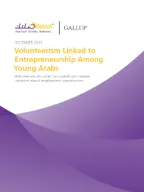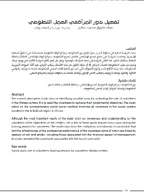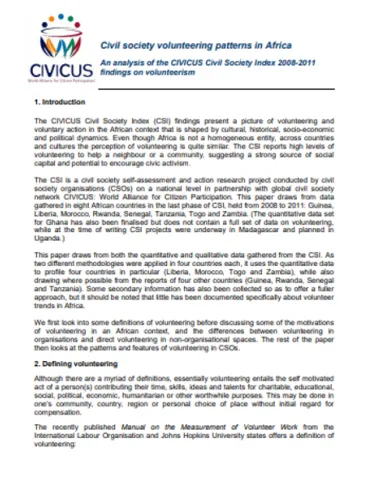
Civil Society Volunteering Patterns in Africa: An Analysis of the CIVICUS Civil Society Index 2008–2011
Fast read
- This paper provides a snapshot of volunteerism in Africa based on data from the CIVICUS Civil Society Index. It profiles four the countries of Liberia, Morocco, Togo and Zambia and includes insights from Guinea, Rwanda, Senegal and Tanzania.
- The paper looks at the definitions of volunteering and the motivations of volunteers in Africa, as well as patterns of volunteering in civil society organizations and the differences between organizational and non-organizational volunteering.
Summary
The paper notes that the different definitions of volunteerism mean it is important to acknowledge the ways in which countries define volunteerism based on national contexts. It also suggests that civil society organizations in Africa rely heavily on volunteers for various functions. This creates challenges for the continuity of these organizations, which can be affected by the turnover of volunteers compared to paid staff. In terms of gender representation in volunteering, the paper highlights instances with a higher participation of women compared to men and vice versa, depending on the national contexts. It also found high levels of volunteering as a source of social capital and noted its potential to foster civic activism.
The paper includes recommendations for governments for better promoting volunteering in Africa. Its recommendations include developing partnerships with different actors, such as academia and civil society organizations, to build organizational capacity to effectively engage with volunteers. It also stresses the need to engage volunteers through long-term and regular commitments, clarifying the procedures and mechanisms that underpin their work and recognizing their contributions through appropriate recognition schemes.













